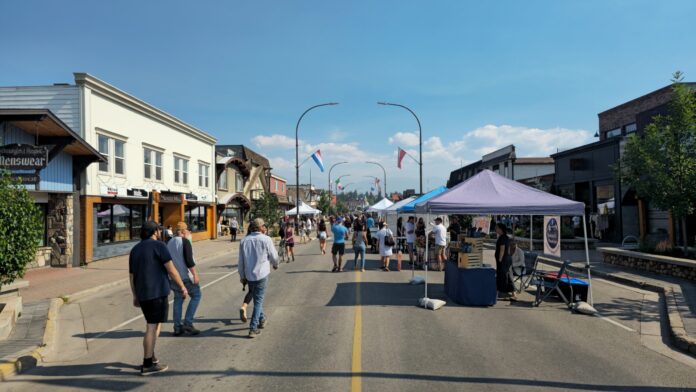A report commissioned by the B.C. government after a deadly attack at the Lapu Lapu festival in Vancouver makes a number of recommendations to improve security at public events.
Eleven people died and many more were injured when a suspect rammed a vehicle through the crowd gathered for the Filipino-Canadian festival in April.
A commission led by former B.C. Supreme Court Justice Christopher Hinkson looked into how public safety is planned for and managed at community events across the province. It consulted with municipalities, regional districts, Indigenous partners, police and event organizers from communities both urban and rural.
Terry Yung, Minister of State for Community Safety and Integrated Services, noted on Wednesday the report found the vast majority of public events in B.C. are safe and well-organized.
However, the commission found smaller or under-resourced jurisdictions face persistent challenges in ensuring public safety at events. Those included limited staff capacity, rising costs for equipment and security, unclear lines of responsibility, and difficulty navigating overlapping jurisdictions or fragmented guidance.
The report makes six recommendations to address public safety at events.
It said all public events, regardless of size, should conduct a risk assessment to identify any gaps in safety measures, and assign clear responsibilities for emergency planning, access, and crowd management.
The commission also calls on the province to establish clear criteria for consultation that defines the roles and responsibilities of all parties involved in event planning, approval, and emergency response. It claims event planners are often confused about who has authority to make decisions and enforce requirements when there are multiple agencies or levels of government involved.
The commission recommends the province establish a hub to provide event planners across B.C. with standardized advice around safety and volunteer training, with many events supported by volunteers and municipal staff with no formal training in event planning or public safety. It said the hub should set out “clear expectations for event organizers, municipalities, and provincial agencies regarding event planning, approval processes, and on-site safety responsibilities.”
The report found the rising costs around event security are one of the biggest barriers to hosting community events, and can lead to issues ranging from short staffing to a lack of access to safety equipment. It recommends the province should consider expanding targeted grants or financial support to help offset event-related safety and security costs, as well as provide direct funding or staffing support to smaller or under-resourced municipalities.
The commission also recommends event planners conduct regular safety exercises in collaboration with police, fire departments and emergency management services.
Lastly, the province should encourage communities and municipalities to conduct assessments after an event to evaluate safety outcomes and identify any areas for improvement.
“We have received the report and are working through the details,” said Yung. “But we accept the intent of the recommendations and are working on how best to act on them.”
He declined to provide any timeline for when the recommendations might be implemented.
Yung said the report includes some immediate resources for event organizers, including an event safety plan template and a risk assessment framework.
The man charged in the April 26 attack at the Lapu Lapu festival is facing eight counts of second-degree murder. Police said the man had multiple interactions with police and the health care system related to his mental health.
The commission said examining the availability of mental health services was not part of its mandate.
Premier David Eby announced following the Lapu Lapu attack the province would review the Mental Health Act.
Something going on in the Prince George area you think people should know about?
Send us a news tip by emailing [email protected].







